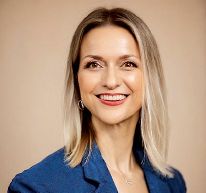This article first appeared in Wealth, The Edge Malaysia Weekly on April 28, 2025 – May 4, 2025
Venture capital firms are gunning for national fund-of-funds Jelewang Capital’s Emerging Fund Manager Programme’s (EMP) allocation. They include new entrants led by industry veterans and the more “independent” firms that are not backed by local institutional investors.
Jelewang Capital will inject a total of RM300 million into local and regional venture capital (VC) firms through a matching format under the EMP and Regional Fund Managers’ Initiative (RMI) respectively. However, no mention has been made on how the sum is to be split between the two initiatives (see box story).
Sources tell Wealth that there are about 50 applicants for the EMP this year, including those who are positioning themselves differently from traditional venture models that prioritise long-term sustainability over aggressive scaling.
A subsidiary of Khazanah Nasional Bhd, Jelewang Capital is an initiative under Dana Impak that aims to develop the country’s VC ecosystem via partnerships with fund managers.
Some of the confirmed EMP applicants are First Move, an early-stage fund founded by Joel Neoh, best known as one of the early founders of Groupon in Asia, and Audra Pakalnyte; and NEXEA Ventures, launched by Ben Lim in 2015.
Vynn Capital, founded by Victor Chua, and Kairous Capital, which focuses on deals in China and Southeast Asia, are also applying for the programme, according to industry sources.
If selected, First Move plans to double down on “backing early-stage founders and writing first cheques”, says Pakalnyte. The funding would help First Move focus on its core thesis, which is to support early-stage founders and attract global talent to set up offices and operational hubs in Malaysia.
First Move primarily backs experienced founders. In terms of sector focus, the firm has invested in consumer tech, artificial intelligence (AI)-enabled platforms and consumer products. Going forward, the VC firm aims to double down on AI, fintech, health tech and consumer goods.
The firm is currently investing out of its first fund and has made close to 20 investments to date. Around 50% of its portfolio is in Malaysia, while the rest are in Singapore, Indonesia and Thailand. Its portfolio companies include Koppiku, Collektr and The Giggly Company.
Meanwhile, NEXEA aims to cultivate “centaurs” — businesses generating around RM100 million in revenue — as opposed to “unicorns”, says managing partner Justin Lim. The strategy used is called “Find, Facilitate and Fund”.
One of the companies that NEXEA invested in, Lapasar Sdn Bhd, has achieved more than RM400 million in revenue since its debut in 2016, he says. Another example is fast-growing solar engineering, procurement, construction and commissioning firm Doople Tech Sdn Bhd, which was started in 2020.
NEXEA raises funds from private investors, but the volume of promising deals it identifies often exceeds its available capital, notes Justin. He says Jelawang Capital’s support would therefore reduce this funding bottleneck.
More visibility for lesser-known start-ups and VC firms
The support from Jelawang Capital is critical for emerging fund managers, says Pakalnyte. “It’s really good to see a programme like this, specifically designed for emerging fund managers. It’s not only funding, it’s also support in setting up the fund, appraising the talent or raising the bar on the VC talent ecosystem.”
A major advantage Jelawang Capital brings is increased visibility for lesser-known start-ups and fund managers that are often under the radar, adds Justin.
Moreover, government agencies lack the resources to be consistently on the ground. NEXEA sees itself as a bridge that connects these founders to valuable public and private support, filling the gap by facilitating awareness and engagement from both ends.
On that note, Jelawang Capital’s focus on emerging fund managers and those without large corporate backers allows players like NEXEA to remain mission-driven and strengthens grassroot-level activity, says Justin.
“By focusing on emerging managers, especially managers who are outsiders, meaning managers who do not represent established franchises, you create a lot more space for innovative programmes and on-the-ground support.
“For example, NEXEA is very ‘independent’, which allows us to focus on the things that we are good at, such as finding and supporting early-stage start-ups, versus having to follow the existing playbooks or strategies established franchises have,” he says.
“What we tend to find is that in a lot of start-ups that are under the radar, the founders are very busy and not reaching out. [They] are building businesses [and] they are unaware of the support that the government and broader entrepreneur community can give them. Having Jelawang Capital on board increases their visibility.”
Dr Sivapalan Vivekarajah, senior partner and co-founder of ScaleUp Malaysia Accelerator, says supporting emerging local fund managers is vital for building a sustainable VC ecosystem. This is because foreign fund managers lack the local networks necessary to understand and nurture domestic start-ups effectively.
“If we want to meet that objective of KL20 Summit 2024, to make Malaysia one of the top 20 ecosystems, it comes back again to building very strong local VC fund manager. That only works if there’s more funding in the ecosystem and more local fund managers as well,” he says.
Hopeful of change in the ecosystem
Established in 2024, Jelewang Capital was established following the consolidation of two government venture agencies, Malaysia Venture Capital Management Bhd and Penjana Kapital Sdn Bhd, into a single national entity.
The fund-of-funds model essentially means the government supports the VC industry by investing in private funds and letting them invest the government’s funds, usually done in a matching format, says Sivapalan.
Jelawang Capital is not the first Malaysian attempt at the fund-of-funds model. For instance, Penjana Kapital implemented it with a one-to-one matching scheme where every RM1 raised privately was matched by the government.
Jelawang Capital is following the same model but will contribute up to 30% of a fund’s capital. This requires fund managers to raise the remaining 70%.
A persistent issue in previous government-backed VC programmes was false matching where fund managers claimed they could raise matching capital, but fell short after securing public funds, according to a fund manager. Jelawang Capital has moved to close this loophole by introducing a stricter funding requirement, he adds.
“To demonstrate tangible fundraising ability and external validation of the general partner’s credibility, the fund must secure at least 20% of its total size in hard commitments from external limited partners before participating in this proposal, according to the EMP information pack,” he says.
Save by subscribing to us for
your print and/or
digital copy.
P/S: The Edge is also available on
Apple’s App Store and
Android’s Google Play.










